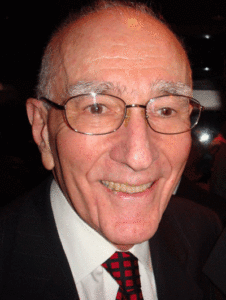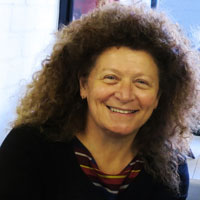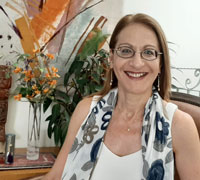Our May colloquium discussing Philip Bromberg’s “Awakening the Dreamer” achieved in our minds two objectives: firstly, it tackled the question of relational technique, particularly self-revelation and disclosure; secondly, it gave tribute to one of our sharpest, creative, most compassionate and influential theorists.
The colloquium discussion delved deeply into the differences between self-disclosure and revelation, questioning whether they are explicit, choice or fact; if we ever quite know who is the revealer and who the revealed; and whose needs it serves, the analyst’s or the analysand’s – indeed, wondering if one can differentiate them in the throes of therapeutic processes. Additional questions arose: Are spontaneity and authenticity antithetical or mutually exclusive to technique and to safety? Is the analytic dyad and what occurs within it our sole compass, or has relationality created its own canonic literature that can and should be studied as practice guidelines? And what is the difference between an accumulation of clinical wisdom and the creation of a “book”? These questions surfaced and, we hope, became troubling.
 Bromberg’s immense importance and influence was discussed with remembrance, gratitude, and a measure of reverence. He was a bold innovator who took part in the relational revolution, in the passage from one- to two-person psychology, and in the introduction of the analyst’s irreducible subjectivity as an active factor in therapy. Relationality challenged the abstinence, rigidity, and power structures of classical analysis.
Bromberg’s immense importance and influence was discussed with remembrance, gratitude, and a measure of reverence. He was a bold innovator who took part in the relational revolution, in the passage from one- to two-person psychology, and in the introduction of the analyst’s irreducible subjectivity as an active factor in therapy. Relationality challenged the abstinence, rigidity, and power structures of classical analysis.
In the convergence of these two objectives, new questions were formulated: Has relationality created its own modes of rigidity, idealizations and fixed power structures? Can the benign, intersubjective, dyadic meeting be taken for granted? What about the therapist’s privacy needs? What if we feel that certain patients need interpretation and abstinence and that relationality does not suit all? May we voice critique of ideas and self-states of our relational fathers and mothers? Can we avoid sleepy idealizations, debate and disagree respectfully? Can we contain heterogeneity and multivocality and retain togetherness?
We think that the love and gratitude felt towards Bromberg granted the inspiration, energy, and ground for the evocative, at times provocative, nature of this colloquium.
Our next colloquium opens on November 2nd and runs through November 13th. We will be presenting and discussing Matt Aibel’s (USA) “The Sleepy Analyst Struggles to Awaken: Dissociation, Enactment, Regression and Altered States with Trauma Patients.” This erudite and honest text discusses the analyst’s sleepiness as a defense against affect in the patient and analyst, and explores it as an enactment of parental unavailability and abandonment and a primitive communication from the patient about early states of psychological deadness and unintegration. In the context of relational literature that celebrates engaged and enlivened registers, this article considers the problems and potentials of dwelling in a distanced and deadened intersubjective field.
We look forward, as always, to meeting you all in this shared space of ours.
Cathy Hicks & Shlomit Gadot, Colloquium Committee Co-Chairs
 Cathy Hicks, Ph.D.
Cathy Hicks, Ph.D.
Sydney, Australia
Email Cathy Hicks
 Shlomit Gadot, Ph.D.
Shlomit Gadot, Ph.D.
Ramat Hasharon, Israel
Email Shlomit Gadot

